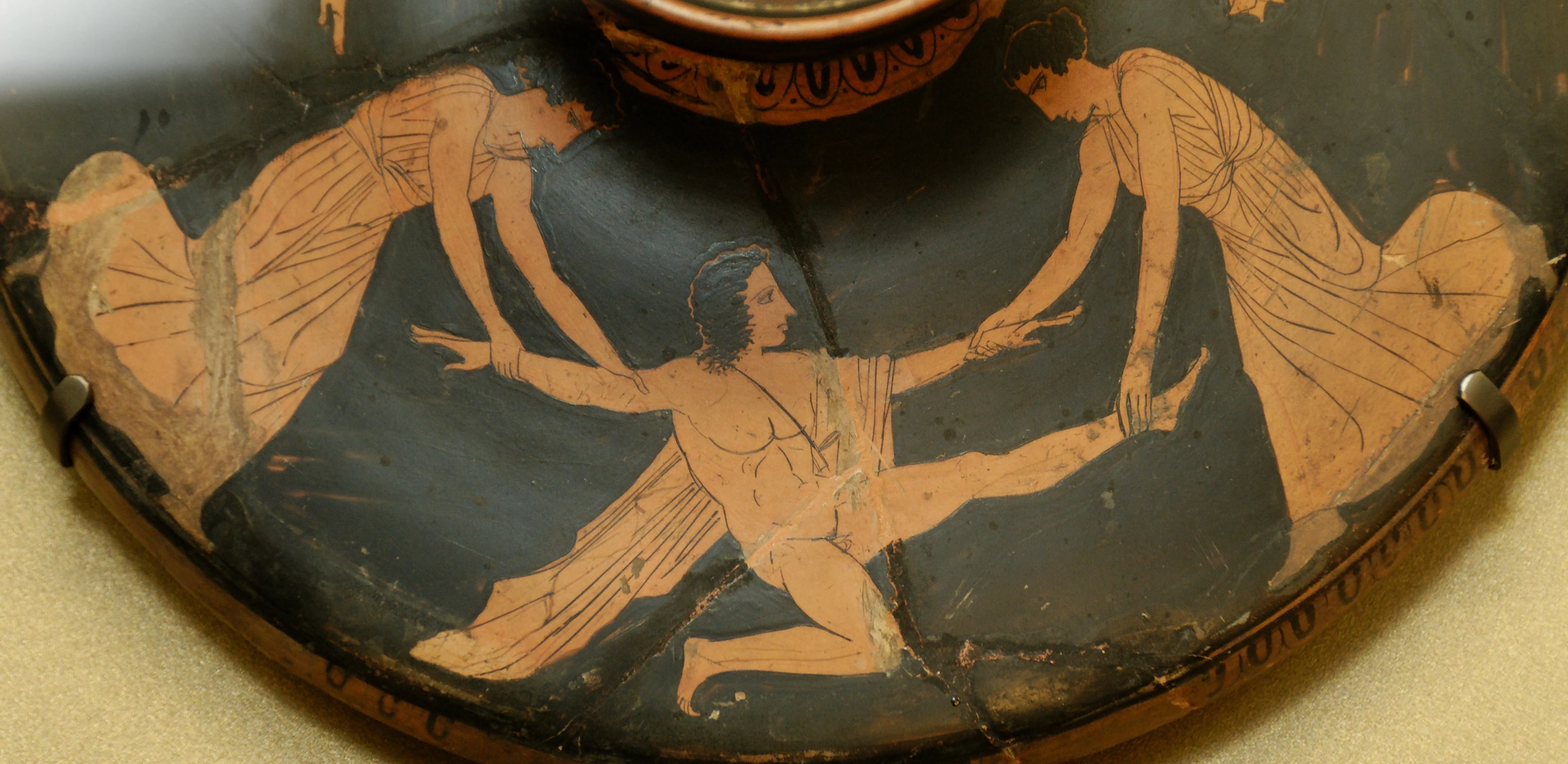A LITTLE BIT INTO BAKKHAI

Pentheus being ripped off by the wild women
Before getting into the new version of BAKKHAI by Anne Carson, I'd like to go back in time, a few years ago, maybe a few centuries and bring if not the essence, but some of the aspects that make this last play by Euripides one of the most acclaimed.
BAKKHAI was Euripides last work for the stage and it was performed in Athens a long, long time ago, at about 405 BC.
BAKKHAI shows the two opposite sides of man's nature: the rational and civiliced side, which takes part in men's decisions but also the instinctive side which can be useful at taking decisions sometimes (and why not, it is, really...but only sometimes)
One thing that gives BAKKHAI a distinctive position among all the greek plays is the fact that the chorus is integrated into the plot and the God is not a distant presence, because he is one of the characters, he is, without doubt, the protagonist.
ECSTASY, TERROR, BACCHAE
1. There comes Dionysius, telling the story of his life and how he is the son of Zeus and Semele, though the citizens don't believe he's a God, specially Semele's sisters . He has disguised as a mortal and has led all the Thebes women into the mountains to observe his ritual festivities. All the women have become mad.
2. An all-female chorus takes part as soon as Dionysius leave the stage, singing and dancing. Ans they will be a presence in the entire play.
3. The dionysian feasts are taking place, Cadmus and Tiresias seem to join it, when Pentheus, the Thebes king, appears and intends to capture everyone, Dionysius included (who he doesn't recognise as the God is dressed up). Pentheus is against these feasts.
4. Later a sheperd comes down from the mountains and reports that he found women up on the hills behaving in a strange way. Pentheus wasn't sure about that fact, now he knows more about what's going on with Thebes women.
5. Pentheus gets angry and intends to kill all the women, but Dionysus persuades him to disguise as a woman and observe what's happening. Of course, Pentheus doesn't realise that the man (or semi-human) giving the advice is not other than Dionysus.
6. Pentheus, the Thebes king, agrees and dressed up as a woman climbs the mountain. The king, being betrayed by the same Dionysus, is captured by the wild women who confuse him with a lion.
7. Pentheus is killed by all the women, including his mother Agave. Agave, the woman whose womb carried Pentheus once, is the one who carries his son's head down to the city as a trophy.
8. Everything is misfortune for the royal family, now broken into pieces. Agave gets mad while trying to reassemble Pentheus' corp together. Now her son is dead, she killed him.
9. Dionysus' revenge has taken place. Nobody will question his divinity anymore!!!
"A great part of the thrill of BAKKHAI is its unusual self-reflectiveness: the 'meta' quality of its reflections on how the theatre works. All of us, when we attend the theatre, are seeing double-seeing, as Pentheus does under Dionysus' spell, 'two suns, two cities og Thebes'. we know we are looking at a set, at an actor; but we allow ourselves to see the setting, the character" (Bakkhae: Ectasy and Terror. D. Mendelsohn, 2014)
JUST LET THE PLANE TAKE OFF, AND LET IT FLY HIGH
No hay comentarios:
Publicar un comentario